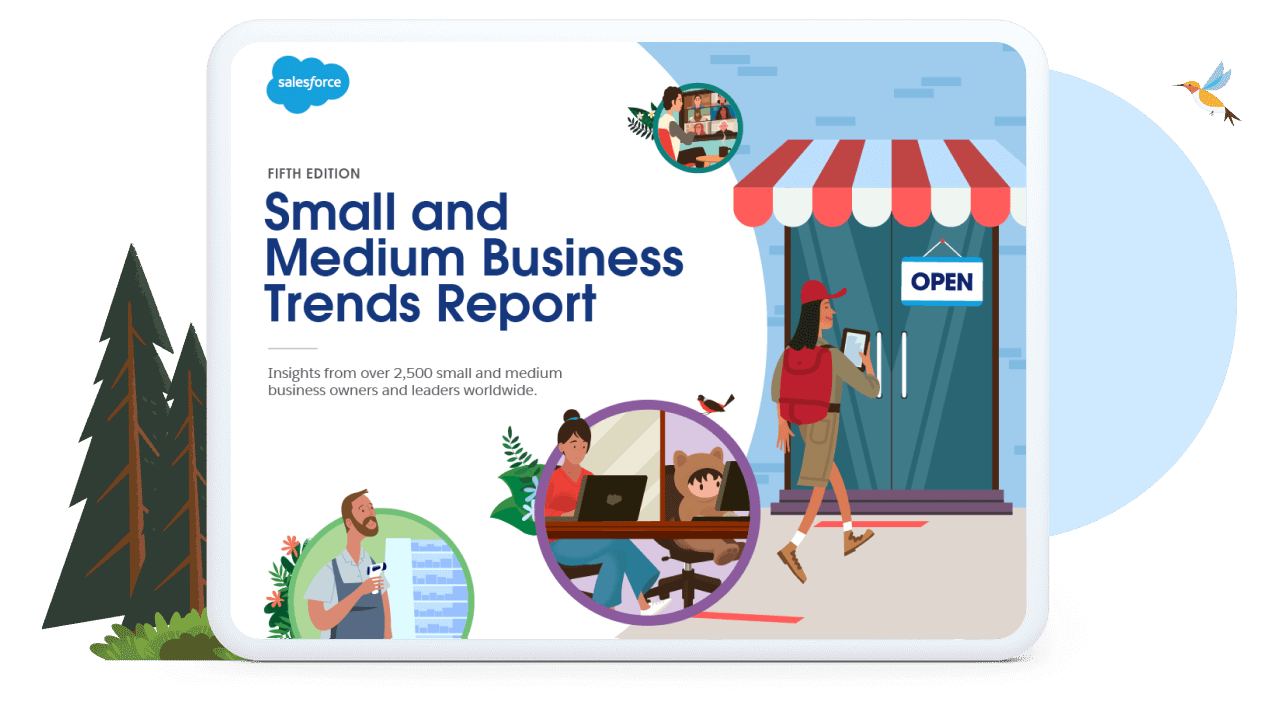A customer base is critical for business success. And maintaining, nurturing and growing that customer base is more important than ever. But in an age of customer-centricity – when it costs 5x more to attract a new customer than retain an old one, and the next competitor is always just a click away – how can SMEs unlock the full potential of their customer base?
The SMB Trends Report 5th Edition
Discover what’s driving today’s small businesses – and see where they might be headed next.

Here are 10 quick questions to help you identify the potential of your customer base, build better relationships and grow your business.
- What is a customer base? A customer base consists of your most loyal and dedicated customers. These are people who have a strong affinity for your brand and are most likely to support your business through thick and thin. This is different from your target market, which refers to a set of new customers you’re trying to reach.
- What are the benefits of a strong customer base? Having a strong customer base not only provides recurring revenue; it can help grow your business. If your customer base has a large professional reach or a wide circle of friends, their advocacy can expand your customer base exponentially. And the larger your customer base is, the easier it is to increase and sustain your revenue stream. It’s also cheaper to market to your customer base, as they’re already aware of your products or services.
- What is an example of a customer base? Think about ardent fans: the shoppers who queue up overnight to buy the latest Supreme drop. The cars are full of fans who used to follow the Grateful Dead from gig to gig, city to city. Both of these groups could be considered a customer base. Customer bases don’t have to be quite so openly enthusiastic, though; they just have to be loyal. For instance, someone who buys the same soap every month would be part of a customer base.
- How can you build a strong customer base? Some ways to build a strong customer base include:
- Building trust: A business’s ethics and trustworthiness are more important than ever. In fact, 95% of customers say that their loyalty depends on a brand’s trustworthiness. One effective way to build trust is to create a loyalty programme, which will enable you to offer great perks to your customer base.
- Highlighting your values: If you’re looking to build a strong customer base, then it’s important not to view relationships as being purely transactional. For instance, brands such as Green Tomato Cars, which focus on sustainability and protecting the environment, have made their core values part of their USP.
- Showcasing your USP: Perhaps your business’s USP (Unique Selling Proposition) is its eco-friendly model, like Green Tomato Cars, or perhaps it’s your high-quality products, fascinating origin story or cutting-edge design. Whatever it is, make sure that you’re positioning it correctly, so that you can make your target audience part of your customer base.
- Providing great customer care: 84% of customers say that the experience a company provides is as important as its products or services. It’s difficult to maintain a strong customer base if you’re providing average service, so make sure that your customer service goes above and beyond.
- What’s your ideal customer base? When defining your ideal customer base, you’ll want to put yourself in the shoes of your customer. Who will most enthusiastically respond to the USP of your product or service? What are their values and concerns? What income bracket are they in? How can your business reach this ideal customer base, and how can they develop more products or services they’ll want?
- Do you want to focus on quantity or quality in your customer base? Having a sizable customer base is always a good thing, but the quality of the customer should also be considered. For instance, having 10 customers that spend £100 apiece on your business each month might be better than having 20 customers that spend £25 apiece. It’s also worth noting that some businesses thrive with smaller, high-quality customer bases. For example, Aston Martin has only made 80,000 vehicles in its 103-year history. A smaller customer base could also potentially be a more resilient customer base.
- How can you grow your customer base? One of the easiest – and least expensive – ways to grow your customer base is through referrals. If everyone in your existing customer base turned one other person into a brand advocate, your customer base would double overnight. If those new customers did the same, you’d grow exponentially. You can also grow your customer base by expanding your marketing activities, by targeting new segments or by creating new products.
- What is customer base management? Customer base management refers to how businesses store, organise and leverage the data generated by their customer base. SMEs will likely want to centralise their data management, so that their data can be used to fuel better business intelligence – and better customer relationships.
- What tools and technologies can help you grow your customer base? Growing your customer base has certainly become easier in an age of mobile technology, as billions of consumers are suddenly just a quick click away. One of the best ways to grow your customer base is by implementing a CRM system, which will help you align marketing and sales activities, as well as manage your customer relationships in one simple place.
- What’s the difference between a customer base and an installed base? A customer base consists of customers who have purchased or used your products or services in the past, while an installed customer base is a subset of your customer base who are currently using your products. From a sales or B2B marketing point of view, these two groups should be approached differently. For instance, if you’re selling computers, it may be difficult to sell to your installed base, who are currently using your systems. It may be easier to cross-sell to an installed base.
A new climate calls for new approaches: How the customer base is changing
Customers are increasingly viewing businesses as more than their products and services. And more and more businesses are moving away from relationships that are driven solely by the quest for profits. Today’s businesses and customers are getting personal – and it all starts with getting connected.
To see how CRM systems can help your business reach more customers and make better connections, grab a free copy of our CRM Guide today.
Connected Small Business: Your Guide to Faster, Smarter Business Processes
Read our new e-book to learn how your SME can overcome even the toughest challenges by streamlining and connecting business processes.

























